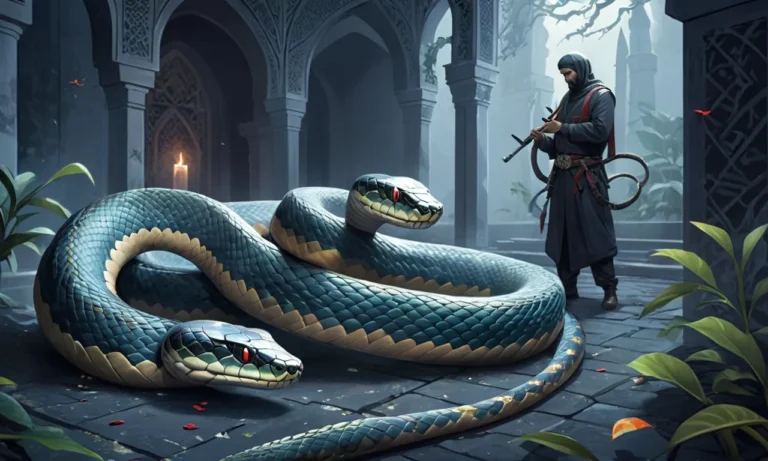Dream of a Dead Cat – Unraveling the Mystery Behind Feline Nightmares

Humans are no strangers to dreams and nightmares, but have you ever stopped to think about your cat’s dream life? Cats, like humans, experience dreams too, and one of the most common types of feline dreams involves dead cats. In this comprehensive guide, we will delve into the mystery behind these dreams and explore the possible reasons why your cat might be experiencing such vivid nightmares.
The Science Behind Cat Dreams
Cats, as nocturnal creatures, spend a significant amount of time sleeping – about 16 hours per day, to be exact. While they’re snoozing away, cats enter REM (rapid eye movement) sleep, which is the stage in which humans experience dreams. However, unlike humans who have limited control over their dream content, cats tend to dream about activities from their waking lives, such as hunting or chasing prey.
In rare cases, however, cats may dream of dead animals, including other cats. This phenomenon is not well understood by scientists, but there are several theories that attempt to explain why this occurs.
The Possible Reasons Behind Dreams of Dead Cats
1. Hunting Instinct
One theory suggests that these dreams could be related to a cat’s innate hunting instinct. Cats have evolved over thousands of years as skilled predators, and even domesticated cats still possess this primal drive. It’s possible that while in REM sleep, cats may revisit their natural hunting behaviors, imagining themselves stalking, catching, and killing prey. In some cases, the “prey” might be another cat or small animal – dead or alive.
2. Social Interactions
Another theory suggests that dreams of dead cats could stem from social interactions with other animals. Cats are complex creatures with their own unique personalities and emotions. They form bonds with both humans and other pets, including dogs and other cats. If a cat experiences the loss of a companion – whether it’s another cat or even a human family member – they might dream about that individual as a way to process their grief.
3. Stress and Anxiety
Cats are sensitive creatures, and they can become stressed or anxious for various reasons. This stress could manifest itself in vivid dreams featuring dead cats, especially if the feline has recently experienced a traumatic event or is dealing with changes in their environment (such as a new pet or moving to a different home). In these cases, the dream serves as a coping mechanism, allowing the cat to work through its emotions while it sleeps.
4. Physical Health Issues
In rare instances, dreams of dead cats could be indicative of a more significant health issue. If your cat is experiencing frequent nightmares involving death or injury, it may be time for a trip to the vet. There are several conditions that can cause unusual behavior during sleep, such as seizure disorders, sleep apnea, and certain types of cancer. Consulting with a veterinarian will help rule out any underlying medical issues.
How To Help Your Cat Cope With Nightmares
If your cat is experiencing frequent nightmares, there are several steps you can take to help them cope:
Create a calm sleeping environment: Make sure your cat’s bedding is clean and comfortable, and consider using calming essential oils like lavender or chamomile in their sleeping area.
Provide plenty of exercise: Cats need physical activity to release pent-up energy and stress. Ensure they have access to toys, scratching posts, and opportunities for outdoor play.
Encourage social interaction: Cats thrive on social engagement, so try introducing them to other cats or pets in a controlled environment. This can help reduce anxiety and improve overall wellbeing.
Seek professional help if necessary: If your cat’s nightmares persist despite your best efforts, it might be time to consult with a veterinarian or animal behaviorist. They can provide additional guidance on how to manage your cat’s stress levels and promote better sleep hygiene.
In conclusion, dreams of dead cats are not well understood by scientists, but there are several theories as to why this phenomenon occurs. By understanding the possible reasons behind these nightmares, we can better support our feline friends in maintaining a healthy and restful sleep. Remember that every cat is unique, so if you’re concerned about your pet’s behavior during sleep, always consult with a veterinarian for personalized advice and guidance.






